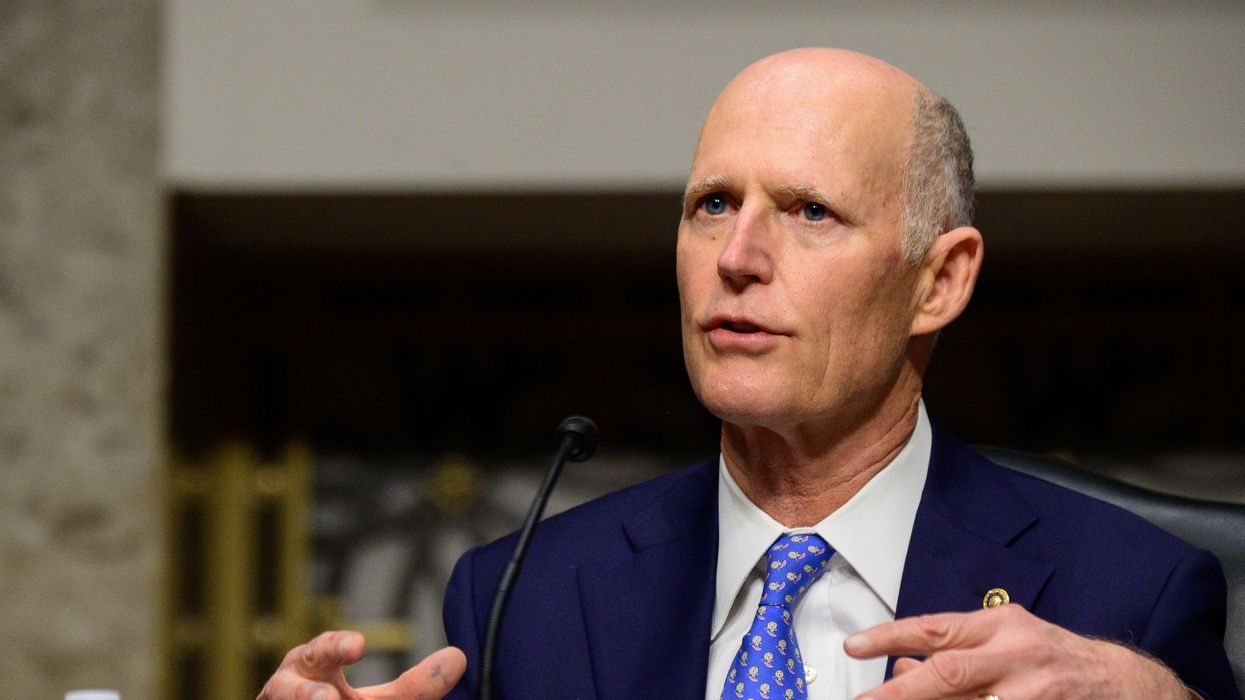Days before the House is set to take up the sweeping democracy reform package known as HR 1, a handful of GOP senators proposed new legislation to "restore confidence" in American elections.
The so-called Save Democracy Act, which would create nationwide voting restrictions, was introduced Thursday by Rick Scott of Florida, Cindy Hyde-Smith of Mississippi and Cynthia Lummis of Wyoming — three of the eight Republicans who voted against certifying the 2020 election results. Lummis' home-state colleague John Barrasso is also co-sponsoring the bill, although he did not object to the election certification.
The Republican bill stands about as much chance of passing in the Senate as the doomed HR 1 does. With the filibuster still intact, neither bill is likely to achieve the 60 votes needed to pass, despite new polling that show the public's growing appetite for reform following the contentious presidential election.
Knowing passage through the 50-50 Senate is an uphill battle for either party's bill, sponsors of both are leaning into messaging. For Republicans, that's bolstering election security following an election they claim — despite all evidence to the contrary — was riddled with fraud.
For Democrats, HR 1 is the culmination of years of work building support for democracy reform and its enactmeent would be especially important following an election in which many states expanded voting access due to the pandemic. The wide-ranging reform package would ease access to the ballot box, curb the influence of money in politics, end partisan gerrymandering and strengthen government ethics.
A recent survey, conducted by Global Strategy Group and ALG Research for End Citizens United and Let America Vote, found overwhelming support for reforms included in HR 1 regardless of political affiliation. The poll, released Friday, found that 81 percent of voters support the changes HR 1 would make to the country's political system. Democrats were almost unanimously in favor with 96 percent supporting the bill, and nearly three-quarters of Republicans (74 percent) and independents (73 percent) also were supportive.
The poll also found that just over two-thirds of those surveyed were more likely to vote for a Senate candidate who backed HR 1. The poll surveyed 1,271 likely voters in a dozen 2022 battleground states Feb. 9-15. It had a margin of error of 2.7 percent.
Conversely, the Republican senators' Save Democracy Act would impose new voter registration requirements, restrict absentee voting access and mandate certain rules around ballot processing and counting.
It would prohibit automatic voter registration — which is currently used by 17 states, plus D.C. Individuals would also need to prove U.S. citizenship and provide their full Social Security number in order to register to vote.
Under the bill, absentee ballots would only be sent to voters who request them. Currently, nine states use an automatic mail ballot system, with five of them conducting elections primarily via the Postal Service. The bill would also prevent so-called "ballot harvesting," require drop boxes to be monitored and require mail ballots be received by Election Day.
The proposed legislation would also mandate the ballot counting process, once it begins, to be completed without pauses or delays. Presidential campaigns would be required to observe the process, and a post-election audit of the ballot tabulation would need to be completed within 30 days.
"What we saw this past election was confusion and chaos caused by inconsistent standards and last-minute changes to established election laws by state officials and activist judges. It's now more clear than ever that there is a serious need for major reforms to our election systems," Scott said in announcing his bill.
Meanwhile, Republicans are also pushing hundreds of bills to restrict voting access in nearly every state legislature. According to the Brennan Center, more than 250 bills have been introduced this year in 43 states.




















